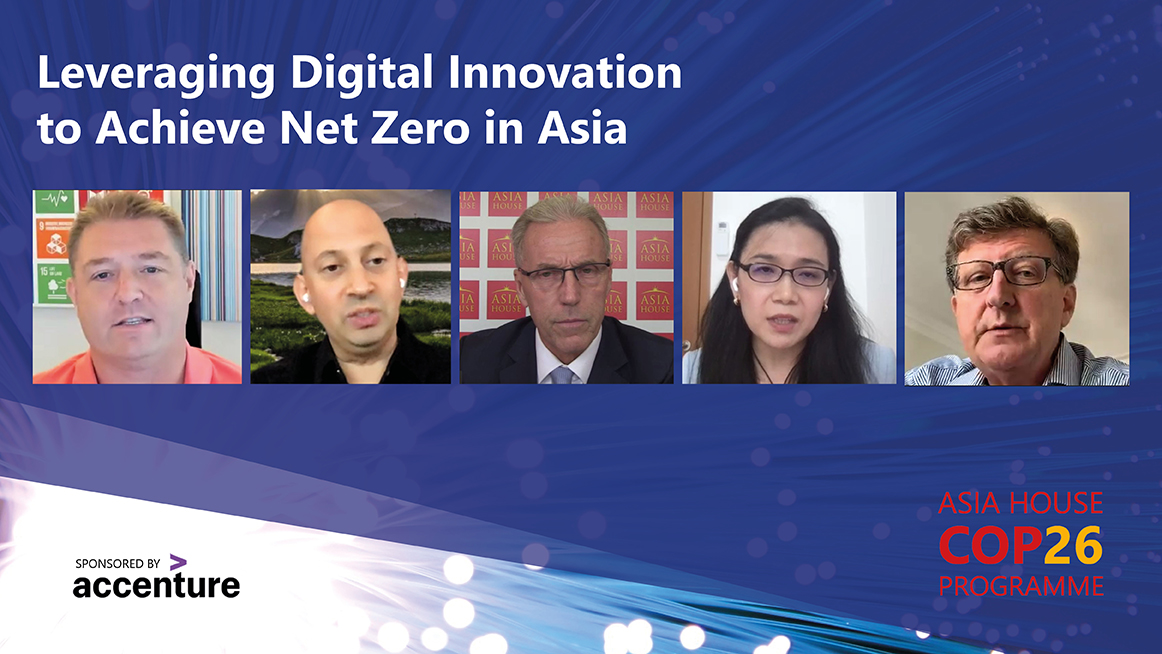Driving commercial and political engagement between Asia, the Middle East and Europe
Driving commercial and political engagement between Asia, the Middle East and Europe
Driving commercial and political engagement between Asia, the Middle East and Europe

Thought leaders from some of the world’s most innovative companies were convened by Asia House today (9 September) to explore the role of digital technologies in meeting Asia’s climate goals.
‘Leveraging Digital Innovation to Achieve Net Zero in Asia’ brought together senior figures from Tencent, Google, Accenture and the European Union to explore the critical role of digitalisation and next-gen technologies in tackling climate change.
For Peter Lacy, Accenture’s Chief Responsibility Officer & Global Sustainability Services Lead, there has been a major shift in the corporate mindset when it comes to climate action. “Over the last 18 months, the increase in focus on sustainability among top executives and business leaders has been just extraordinary.”
And it will be the two central themes of the Asia House conference that will shape the future global economy, Lacy said. “Over the next decade we’ll see that brands’ value and competitiveness will be driven by sustainability and the digital revolution.”
The online conference also heard insights from Ampy Aswin, Google Cloud’s Head of Supply Chain and Logistics Industry Solutions APAC, who highlighted the importance of finding digital solutions to green global supply chains – which currently account for 80 per cent of carbon emissions.
“We need to have a real focus on understanding how data can show us where the crux of the issues are, and identify the solutions that are needed,” she said. “Better understanding of where the key sources of emissions are, and looking at how technology can support us, is where we should be focusing.”
The broader policy response to the climate crisis, including carbon trading and the European Union’s contentious carbon border adjustment mechanism (CBAM), prompted a lively discussion among the assembled experts and audience. For Raffaele Mauro Petriccione, the European Commission’s Director-General for Climate Action, regulation and pricing are key.
“Carbon markets, like all markets, need regulation,” he said. But regulation alone will not drive change. “A combination of regulation and pricing is what we need.”
The audience also heard from Tencent’s Chief eXploration Officer and Senior Executive Vice President, David Wallerstein, who set out a compelling case for the adoption of artificial intelligence in order to drive efficiencies that reduce environmental impacts.
Speaking with Asia House Chief Executive Michael Lawrence, Wallerstein said the application of next-gen technologies could lead to significant gains across all sectors, presenting exciting opportunities for investors.
“There are so many areas to optimise,” he said. “There’s a niche for everyone. This is a massive opportunity, and it’s not getting the recognition.”
Watch the discussion in full
